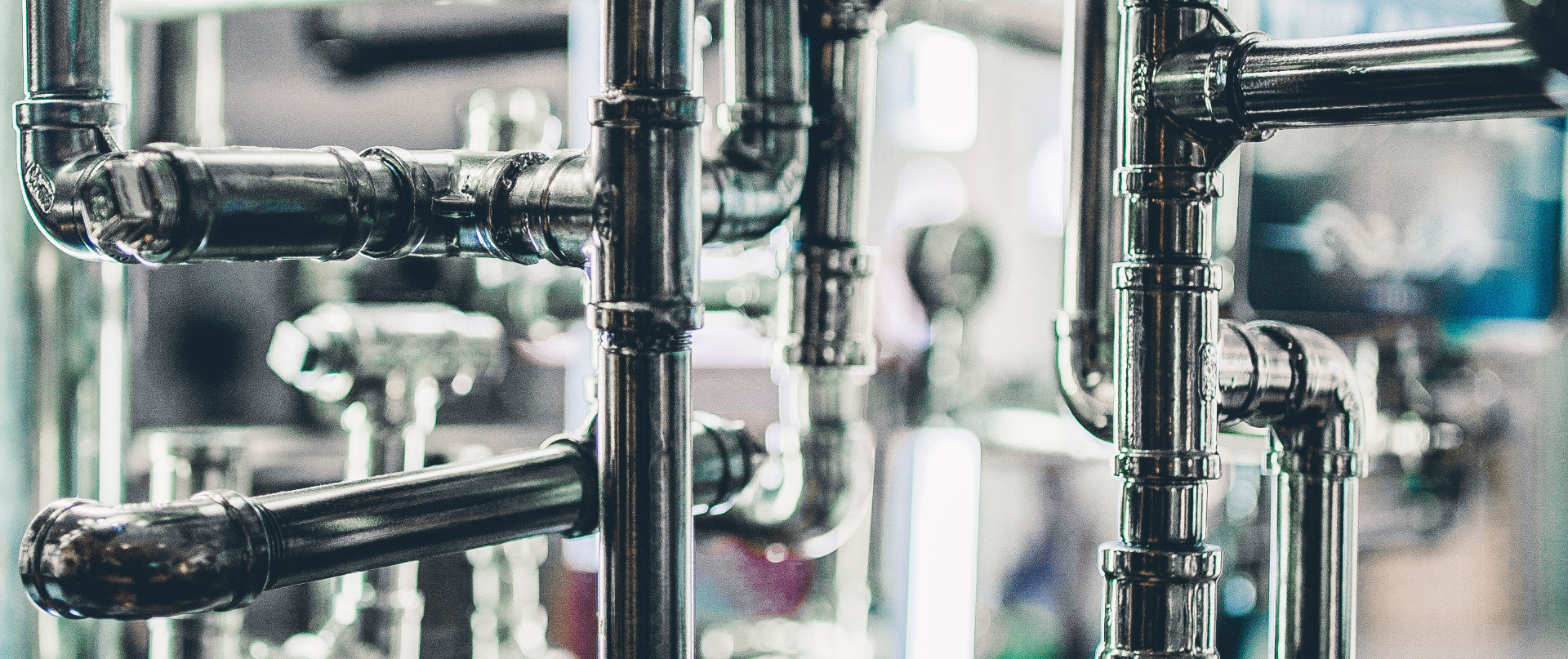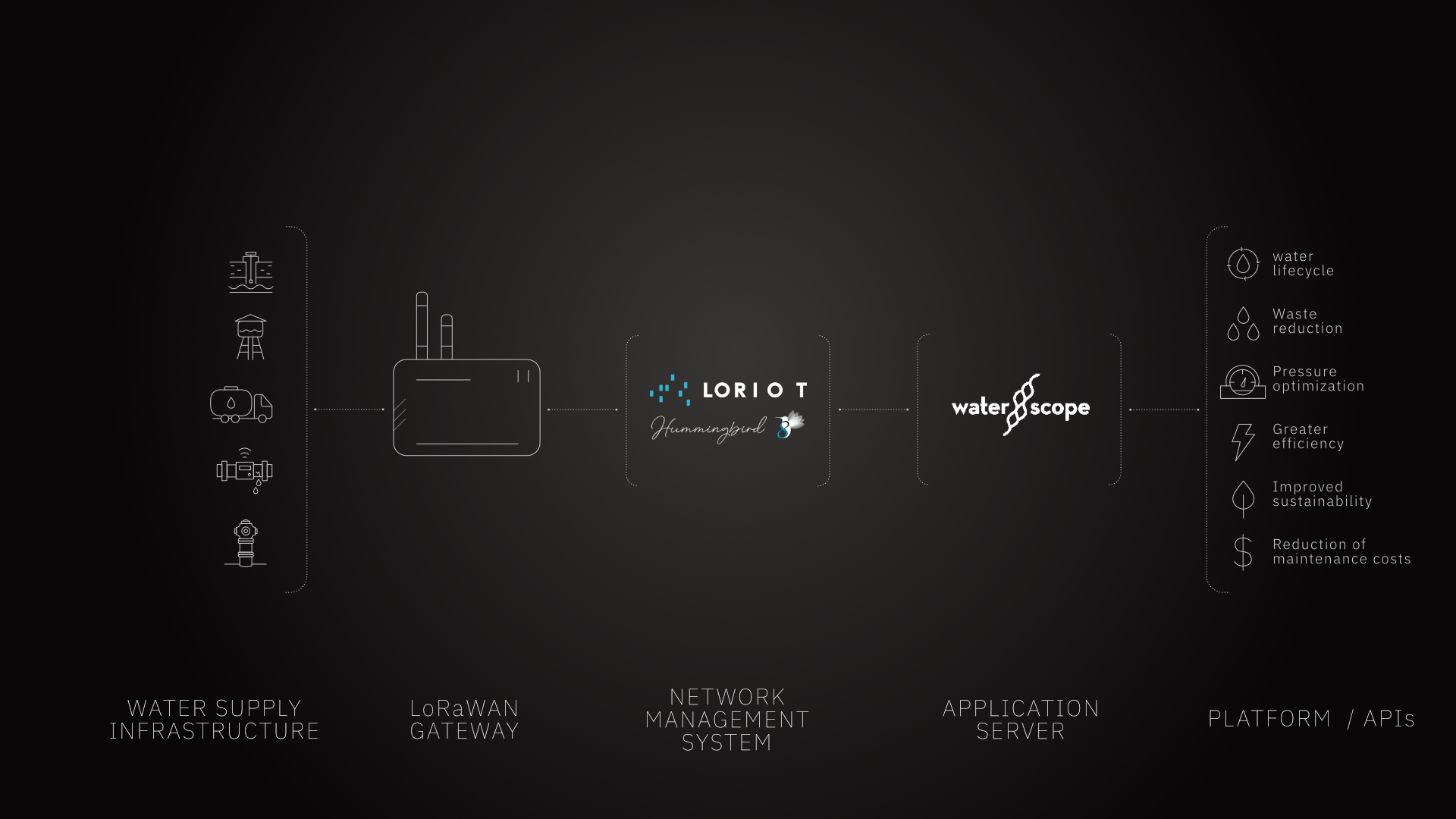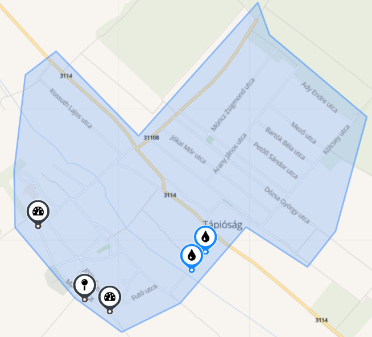Solution
For the required online measurements, WaterScope S2N data acquisition and wireless data transmission devices have been installed to continuously monitor the operation of a waterworks’ pumping station.
The solution measures the pumps’ electrical performance, monitors their operating time and power consumption, measures water pressure, records water meter data, and gives warnings about flooding.
It successfully provides measurement and data collection capabilities without human intervention, even in areas that are not adequately equipped with access and communication infrastructure.
In this use case, a LoRa network is used, that transfers data to the LORIOT Network Management System. A separate LoRa® network was installed for the data collection.
In addition to real-time data collection and transmission, the WaterScope S2N devices are also equipped with alerts and reporting capabilities. This means that the devices can send notifications to the users if any abnormal values are detected, allowing for immediate action to be taken to prevent any potential problems.
The S2N Monitoring System Elements include:
-
2 SGU-L water well shaft monitoring system
-
2 SGU-L Smart Hydrant Pro
-
SGU-L Water tower monitoring system
-
2 SPM-L pressure management
The data from the WaterScope S2N devices can be viewed in context, allowing users to monitor water usage in real-time and make informed decisions about water management. The data loggers installed in the DMA district make it possible to
track water extraction and water pressure data, as well as the water tower level of the district.























